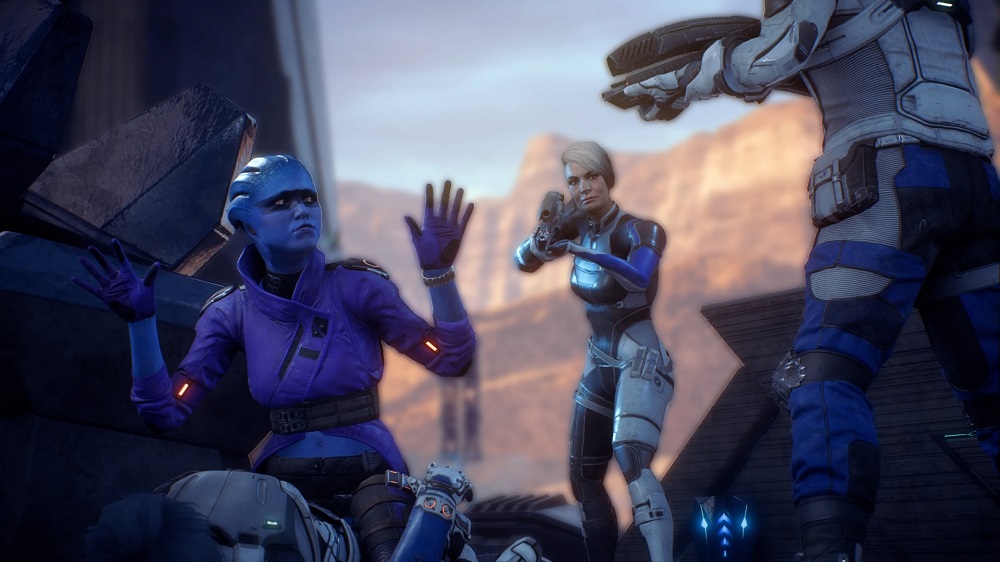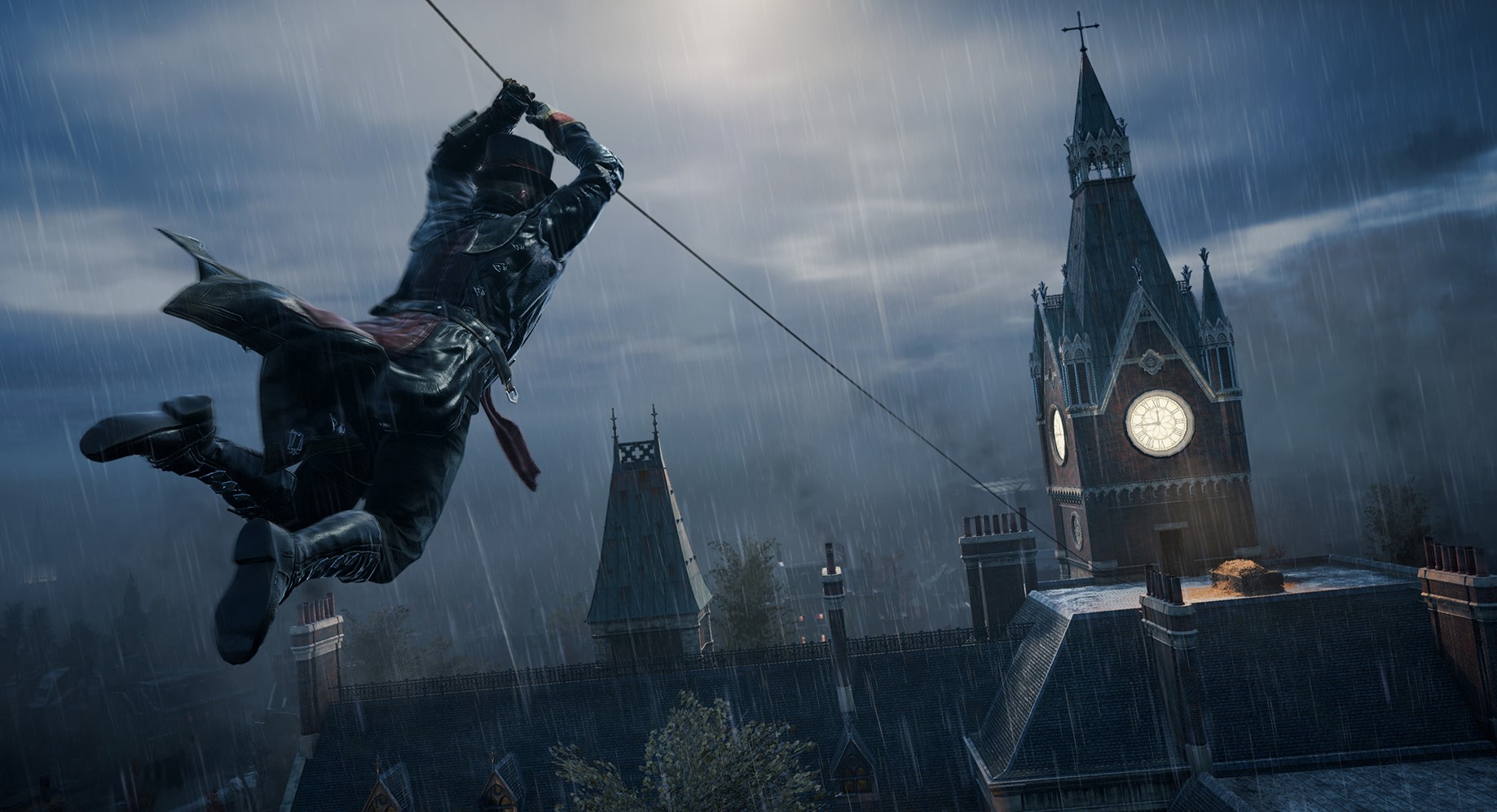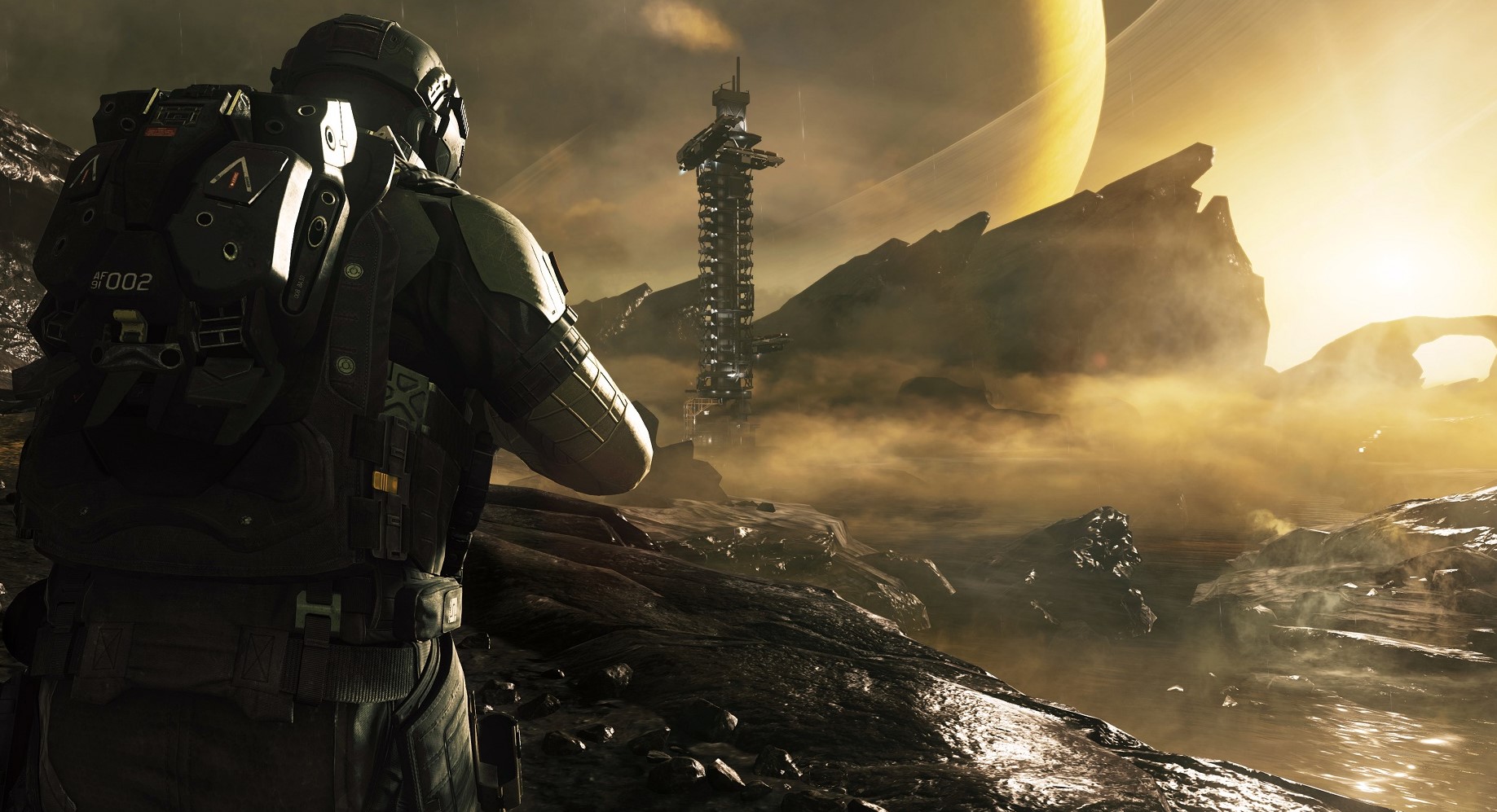Why today's biggest game franchises are failing
Has the iron grip of the all-powerful franchise finally been broken?

Sign up for breaking news, reviews, opinion, top tech deals, and more.
You are now subscribed
Your newsletter sign-up was successful
For a very long time franchise games have been king of the proverbial castle. Sat upon a throne wrought from multi-million dollar advertising campaigns, lucrative energy drink tie-ins and over-indulgent celebrity launch parties, they surveyed the industry like a conquered kingdom.
But those days, it seems, are numbered.
Some of the biggest franchises in video games have seen sales begin to fall. Call of Duty saw its first entry in over a decade fail to top its predecessors. The critically acclaimed Hitman series is now seemingly staring into an abyss as its developer and rights are strung up for sale to the highest bidder.
Even Mass Effect - that much-loved sexy time simulator in space - has seemingly been taken out of cosmic rotation thanks to a lukewarm reception to its latest installment.
Has the bubble finally burst? Have the likes of CoD simply grown too fat on its own success, with even its staunchest of supporters finally starting to tire of overpriced map packs, predictable killstreaks and celebrity voice overs?
It’s a complicated question to answer, but it’s clear our industry is experiencing something of a shift that’s sent hairline cracks through the upper echelons of games development.
Outside of the big annual sports simulators, whose financial success seems almost assured by their presence alone, having a big publisher pumping millions of dollars into your project suddenly isn’t a guaranteed success.
Sign up for breaking news, reviews, opinion, top tech deals, and more.
And, if franchise games are truly coming to a grinding halt, what comes next?

Line of Duty
So let’s talk about Call of Duty. That behemoth that’s been progressively getting bigger and bigger since Activision and Infinity Ward decided to buck the trend of the time and leave WW2 behind for a modern-day war setting in 2007. It was a risk, but CoD went all Tom Clancy and soon Activision was running out of mattresses to stuff its cash under.
Nine games later - and a torrent of premium-priced DLC - and last year’s Infinite Warfare finally proved one instalment too far as it failed to match and exceed those of 2015’s Black Ops 3.
Though, let’s be clear here - this isn’t a franchise failing to make profit. Infinite Warfare is a game that sold 1.8 million copies in its first week and went on to become the highest selling game of 2016.
In February, Activision even went on the record and stated how it felt Infinite Warfare hadn’t met its expectations, with the game only matching half of those achieved in lifetime sales by Black Ops 3. There’s even been the argument from Activision’s top brass that Infinite Warfare’s position as a primer for a new sub-series was part of its downfall compared to the ‘brand weight’ of Black Ops. So why did 2013’s Ghosts and 2014’s Advanced Warfare sell so well then?
There’s a genuine excitement for a new AC in 2017 (okay, there’s at least a noticeable drop in the amount of groaning) so giving your IP a breather pays dividends in the long run.
Come on - do you really think the subtitle of a Call of Duty really matters one bit to its ‘brand recognition’. The words ‘Call of Duty’ are all that matter. A man with a gun on the front cover is all that matters. It could be called Call of Duty: Extreme Shooty Bang and it would still sell millions upon millions of copies.
There are a lot of factors at play here, far more than we industry analysts, pundits and commentators can comprehend. There’s the simple fact that the CoD series has long been suffering from franchise fatigue and it could have been any instalment of recent times that finally collapsed from the weight of its own hollow shell.

Then there’s that annual release cycle, powered by multiple studios that has three CoD games in development at one time. Three! Ubisoft wisely gave Assassin’s Creed a year off (well, kind of, if you don’t count that godawful ‘film’ that slithered onto screens last year), and it’s paid off. There’s a genuine excitement for a new AC in 2017 (okay, there’s at least a noticeable drop in the amount of groaning) so giving your IP a breather pays dividends in the long run.
Call of Duty’s move to WW2 might help heal some wounds in the short term, but these are just plasters that will saw fall off as the CoD machine rolls into 2018 and a new version. WW1 worked wonders for Battlefield 1 for many reasons, but there’s no denying the three years between it and its previous entry will help gamers feel like EA and DICE are investing as much in it as they are.

Cause and Effect
But what about Mass Effect Andromeda? There’s certainly no chance brand fatigue is the reason for Ryder and co’s problems - after all, it’s been five years since ME3 arrived with its own controversy (but healthy sales, nonetheless).
Much like Call of Duty’s problems with Infinite Warfare, Andromeda is a game fighting wars on multiple fronts. In 2012, March was a dead zone for game releases, enabling EA and Bioware to take up column inches and clicks with relative ease as one of the big tentpole releases of the year up until that point.
In 2017, the first three months of the year have been transformed into a mini winter rush, with huge titles dropping one after the other. Oh, and there was a little thing called Nintendo Switch arriving within weeks of Bioware’s new sci-fi RPG. Talk about having your limelight stolen.
A raft of mixed reviews (most of which aired towards the negative) and enough gifs to put its animation problems front and centre, have ensured we won’t be seeing a new entry in the Mass Effect franchise for quite some time.

The shifting landscape
Mass Effect isn’t the victim of our industry and its transforming landscape, and the fissures left by their diminished forms could go either way for the games developers working below them. We could see triple-A as a tier slowly shrink as publishers become as suspicious as film studios when it comes to signing off on a huge investments into projects that might not bring a strong return.
We could see triple-A as a tier slowly shrink as publishers become as suspicious as film studios when it comes to signing off on a huge investments into projects that might not bring a strong return.
Publishers also have incredibly high expectations for their properties when they’re considered ‘triple-A’. Even multi-million selling titles are considered to be underperforming in this day and age - just look at how critical Square Enix has been of the two rebooted Tomb Raiders, despite strong sales across platforms.
Perhaps the sale of Io Interactive and the Hitman series isn’t as shocking as it first seemed.
There’s a hope we might see some mid-tier studios step up to the plate and give IPs with less exposure a go in the spotlight, but at this stage there may not be triple-A to replace. 2017 really could be the year the big-budget video game becomes a thing of the past.
- What's coming next? Tune in to our E3 2017 coverage to find out